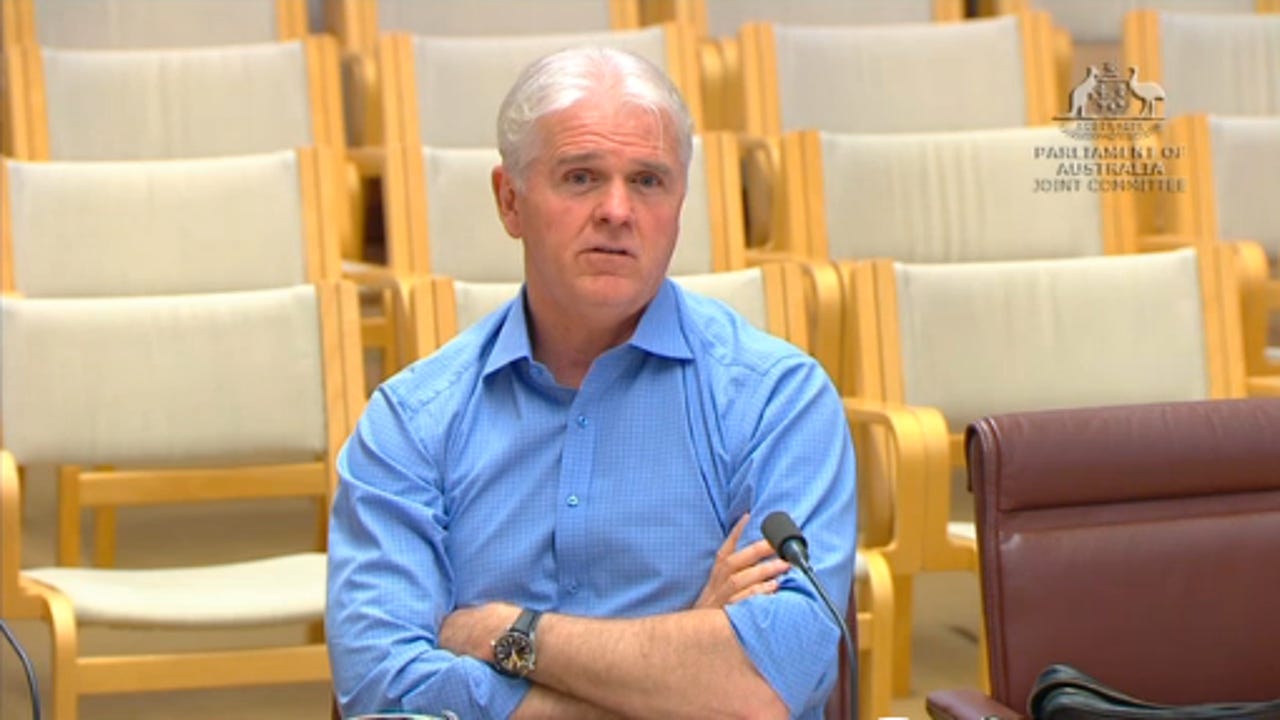Not prudent to have NBN line tests prior to service: Morrow

NBN CEO Bill Morrow has rejected calls for the National Broadband Network (NBN) to provide line speed test results to customers before they sign with a retailer for service.
"I just wouldn't think it was prudent," Morrow told the Joint Standing Committee on the National Broadband Network on Friday morning.
"It is completely impracticable, and you've got to realise this is taxpayers' money that is invested in this, and to go out and do an each resident test on this thing for something of this nature is impracticable, and it would [be] exorbitant in the cost to do that.
"If the government mandated: 'Go spend heaps more taxpayer money on this, diminish the economic returns to address the issue' -- that, quite frankly, isn't as material as what we are having this discussion sounding like it to be."
Instead, Morrow said he would rather customers continue asking RSPs for data, who in turn need to get the data from NBN, and said he didn't want the government-owned wholesale to becoming the "data speed police".
"If a product is chosen with your retailer, and that product can be different based on what they now know around the attainable line rate, most RSPs will adjust your speed on the spot if you want something different," he said.
Morrow said that if a user is unhappy with the speeds attained from the retailer once connected, it is a matter between the retailer and the customer to determine whether they are able to receive a refund.
On the issue of NBN deciding last week to cease sales on its hybrid fibre-coaxial (HFC) network, Morrow said the issues are fixable.
"HFC has ramped up faster than any of the previous technologies, and while that is good news, it has left us with little time to adjust when we identify a problem that could affect customer experience," he said.
"The issues we encountered on HFC [were] not so much the technical side of things, but our ability to address them at scale."
Morrow said the decision to pause sales on HFC was made after NBN had too many issues reported to address while "live with the network".
"We knew that there would be some sort of remediation that was required; we did not anticipate that it would be this much remediation that was necessary, otherwise we would have done a far different job before we released it for customers to connect to," he said.
NBN CFO Stephen Rue said the HFC delay would set NBN back by AU$50 million for the current financial year, and theoretically delay up to AU$500 million in revenue.
"That is hypothetical, I have to say, and if everything was delayed," Rue said. "We will continue to build out lead-ins, we will continue to build into new areas, we won't be releasing them obviously for sale, the actual answer to that question is well and truly being worked through."
Rue pointed out that the hits to NBN's bottom line would be covered by its contingency pool, so the network's funding would not exceed its AU$49 billion envelope.
Shadow Minister For Communications Michelle Rowland said the HFC delay was "another bitter pill for taxpayers".
"This outcome would require a further $500 million to be drawn down from a $1.7 billion taxpayer-funded contingency pool, which is repeatedly being used to patch-up Turnbull's multi-technology mess," she said.
In September, the joint committee recommended that NBN connect as many premises as possible with its fibre-to-the-curb (FttC) and fibre-to-the-premises (FttP) networks.
"The committee recommends that the Australian government direct and enable NBN to complete as much as possible of the remaining fixed-line network using FttC at a minimum (or FttP), and require NBN to produce a costed plan and timetable under which that would be achieved," the committee said.
The committee also recommended that the government set a reasonable data allowance on NBN's Sky Muster satellite service, and direct NBN to develop plans for a wholesale mobile service using its fixed-wireless towers.
NBN is set to bring its gigabit-capable upgrades online next year, with G.fast set to replace VDSL on its FttN, FttB, and FttC networks next year, and DOCSIS 3.1 on the HFC network slated for late 2018.
Related Coverage
- NBN CVC pricing likely to discount 50Mbps speeds: MyRepublic
- TPG to roll out 10Gbps fibre broadband in Adelaide
- NetComm Wireless unveils FttC network connection device
- Vodafone launches NBN services
- ACCC appoints SamKnows to monitor NBN speeds
- ACCC examines Telstra FttC migration plan
- NBN HFC pause will cost Telstra AU$600m in FY18 EBITDA
- HFC was fine when Telstra had it: Penn
- HFC not as 'mature' as fibre: Fifield
- NBN delays HFC rollout until customer experience issues fixed
- NBN trialling fibre to the traffic light
- NBN looking into 1Tbps satellites
